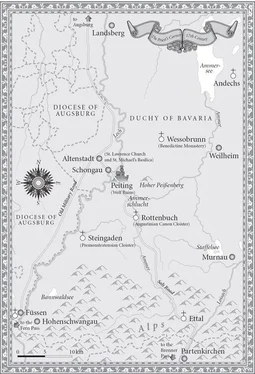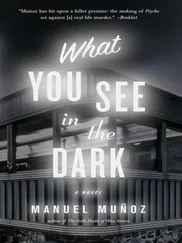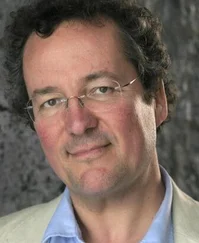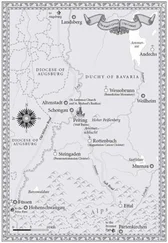Oliver Potzsch - The Dark Monk
Здесь есть возможность читать онлайн «Oliver Potzsch - The Dark Monk» весь текст электронной книги совершенно бесплатно (целиком полную версию без сокращений). В некоторых случаях можно слушать аудио, скачать через торрент в формате fb2 и присутствует краткое содержание. Жанр: Исторический детектив, на английском языке. Описание произведения, (предисловие) а так же отзывы посетителей доступны на портале библиотеки ЛибКат.
- Название:The Dark Monk
- Автор:
- Жанр:
- Год:неизвестен
- ISBN:нет данных
- Рейтинг книги:5 / 5. Голосов: 1
-
Избранное:Добавить в избранное
- Отзывы:
-
Ваша оценка:
- 100
- 1
- 2
- 3
- 4
- 5
The Dark Monk: краткое содержание, описание и аннотация
Предлагаем к чтению аннотацию, описание, краткое содержание или предисловие (зависит от того, что написал сам автор книги «The Dark Monk»). Если вы не нашли необходимую информацию о книге — напишите в комментариях, мы постараемся отыскать её.
The Dark Monk — читать онлайн бесплатно полную книгу (весь текст) целиком
Ниже представлен текст книги, разбитый по страницам. Система сохранения места последней прочитанной страницы, позволяет с удобством читать онлайн бесплатно книгу «The Dark Monk», без необходимости каждый раз заново искать на чём Вы остановились. Поставьте закладку, и сможете в любой момент перейти на страницу, на которой закончили чтение.
Интервал:
Закладка:
“The loot…is buried near the cave, over by the dead beech tree…” he groaned. “I would have told you, anyway.”
“Excellent.” Kuisl grinned and let go. Hans Scheller pulled his hand back and looked at his little finger, which was bent away from his hand at an odd angle.
“Go to hell, Hangman,” he whispered. “I know people like you. You’ll grab the loot for yourself and let us all suffer a long time before we die.”
Jakob Kuisl shook his head. “I’m serious, Scheller. I’ll appeal to the town for you. No torture, no wheel. A nice, clean hanging. I promise.”
“And the children and women?” Scheller asked. There was almost a look of hope in his face.
The hangman nodded. “I can’t promise anything, of course, but I’ll do my best. But in return, you have to tell me a few things.”
Hans Scheller looked at him suspiciously. “What?”
“First, this attack a few days ago on our medicus and his companion. Was that you?”
Scheller hesitated for a moment. Finally, he replied, “Not me personally, but a few of my men. They were getting bored, so they ambushed him, and then the woman blew them away.” He grinned. “She must have been a hell of a woman, according to what I’ve heard.”
The hangman grinned back. “I’d say so, too, if a woman beat me to the draw in a gunfight. But I have something else here-this bag.” From under his overcoat, Kuisl pulled out the embossed leather satchel he had found in the robbers’ hideout. “Where did you get this?”
The robber chief hesitated. “Let’s see…We took that from some other bandits.”
“Other bandits?”
Scheller nodded. “They were tough customers. We surprised them some time ago sitting around their campfire at night, but they fought back like the Swedes. Before they fled, they slit open the bellies of two of my men. They’re a really bad bunch-be careful before you get mixed up with them. They left the bag behind.” Hans Scheller looked surprised. “But why do you want it? There’s nothing of value there. We went through it twice.”
The hangman didn’t answer but continued his questioning. “What did the men look like? Were they wearing black cowls, like monks? Were they carrying curved daggers?”
“Curved daggers?” The robber chief shrugged. “No, they were just ordinary bandits-dark coats, wide-brimmed hats, sabers. Quick and experienced fighters. I presume they used to be mercenaries.”
“And what sort of loot did they have?” Kuisl continued.
Scheller’s battered face twisted into a grimace. “We got whole bags full of it, quite a bit. They must have been as busy as hell around here.” He stopped to think for a moment. “But one thing was strange. They left a lot of things behind at the campfire-dishes, pots, spoons, tablecloths, things like that. A set for four people, but we saw only three of them.” He continued smiling. “The fourth was probably out in the woods taking a piss and took off when we arrived.”
“A fourth man…” Jakob Kuisl said, thinking aloud and looking at the purse in his hand. Then he threw it over his shoulder like an old, unwanted toy and headed for the exit.
“Remember your promise!” Hans Scheller called out as the hangman left.
He nodded. “You’ve got my word.”
He looked in on the sick boy, who was trembling, feverish, and raving incoherently. “After the noon bells, I’ll stop by and bring you a drink of ivy and juniper brandy, which will help the boy’s fever.”
As Kuisl opened the door to leave, he came face-to-face with the severe countenance of Johann Lechner. Behind the clerk stood the bailiff, shrugging apologetically.
“Kuisl,” Lechner snarled. “You owe me an explanation. I came here to observe the prisoners, and what do I find? The hangman was already here before me. Let’s just hope you haven’t wrung their necks already.”
Jakob Kuisl sighed. “Your Excellency,” he said, “you’ll get your explanation, but let’s go up to the office in the castle to do that. Only the robbers need to freeze their asses off down here.”
The funeral bells tolled at exactly ten o’clock, and the funeral began. In spite of the cold, many people had come to say their last farewells to Father Andreas Koppmeyer, among them many simple folk, workers, and day laborers, who counted the fat, fatherly priest as one of their own. Because the old St. Lawrence Church was under renovation and in no way equipped to handle such a huge crowd, the citizens of Altenstadt had moved the funeral service to the great basilica at the last minute.
Simon was one of the last to arrive. He had been up half the night thinking about the riddle in the chapel, leafing through the little guide by Wilhelm von Selling, but he’d made no progress. He was also tormented by the thought that Magdalena had set out for Augsburg without even saying good-bye. Would she ever forgive him? Why was she always so stubborn?
He had fallen asleep just before daybreak and was awakened just a few hours later by his father, who was extremely reluctant to give him time off to attend the funeral. Simon jumped into his trousers, pulled on a new jacket of fine Augsburg cloth, and on the way out the door, drank what remained of the previous night’s coffee, straight from the pot.
As he carefully opened the portal to the basilica, the sermon had already begun. The door squeaked loudly and a blast of cold air came in from outside, so that some of the mourners turned around with disapproving looks. Simon mumbled a few words of apology, took off his hat, and sat down in the back of the basilica on the right, where pews were set aside for the men. In the front, on the opposite side, he could see Benedikta. She was wearing a loosely pleated black skirt and, over that, a lap jacket that accentuated her tightly laced bodice. Her red hair was almost completely hidden under a black hood, and she seemed even paler than usual. All around her sat the well-to-do citizens of Altenstadt. Simon recognized the innkeeper Franz Strasser, the carpenter Balthasar Hemerle, and Matthias Sacher, who, as a rich miller, represented the Altenstadters in the Schongau town council. The physician’s gaze wandered to the red upholstered seat of honor behind the altar. There, sitting up straight and murmuring a silent prayer with his eyes closed, was Augustin Bonenmayr, the abbot of Steingaden. As Andreas Koppmeyer’s superior, he had evidently not hesitated to take the long trip and pay his last respects to the Altenstadt priest.
The dead priest lay in an open coffin in front of the altar, and the church was so cold a thin layer of ice had formed on his face.
Pausing in his sermon for a moment to cast a disapproving eye at the late arrival, Father Elias Ziegler now continued. His nose was as red as a ripe apple, and Simon guessed he’d already helped himself to the communion wine that morning.
“Andreas Koppmeyer was one of us,” the priest said unctuously, “a bear of a man who understood well the cares and fears of his flock, because these were concerns he shared with them.”
A whimper sounded from one of the pews in back, and Simon turned around to see Magda, the fat housekeeper from the rectory, who took out a large, dirty handkerchief and blew her nose loudly. The skinny rector, Abraham Gedler, seemed close to tears, too, and clutched a prayer book tightly, as if trying to squeeze blood out of it.
“But the Lord alone knows when our hour is at hand,” the priest continued, “and so we lay all our hopes and cares in God’s hands…”
Simon’s thoughts wandered to Magdalena and her trip. No one was safe from robbers, even on the Lech-to say nothing of the way back by road. He hoped nothing had happened to her. Her father should never have allowed her to go! She was much too young and naive for such a trip, Simon thought. Unlike Benedikta. The woman from Landsberg might be only a few years older, but she seemed so much more mature. Simon looked straight ahead. Even now, in the face of her brother’s death, Benedikta Koppmeyer seemed composed. The physician couldn’t find anyone else in the congregation who might be a relative. Presumably, Benedikta and Andreas were the only siblings, and the woman had no children. At least she hadn’t spoken of any. Simon was both fascinated and irritated by this elegant lady, who could speak French and, only minutes after, kill a robber in cold blood. He was both attracted and repelled by her. He sighed, knowing that this mix could have fatal consequences.
Читать дальшеИнтервал:
Закладка:
Похожие книги на «The Dark Monk»
Представляем Вашему вниманию похожие книги на «The Dark Monk» списком для выбора. Мы отобрали схожую по названию и смыслу литературу в надежде предоставить читателям больше вариантов отыскать новые, интересные, ещё непрочитанные произведения.
Обсуждение, отзывы о книге «The Dark Monk» и просто собственные мнения читателей. Оставьте ваши комментарии, напишите, что Вы думаете о произведении, его смысле или главных героях. Укажите что конкретно понравилось, а что нет, и почему Вы так считаете.












